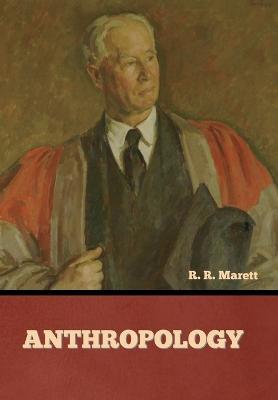Anthropology

Anthropology
Robert Ranulph Marett (13 June 1866 - 18 February 1943) was a British ethnologist and a proponent of the British Evolutionary School of cultural anthropology. Founded by Marett's older colleague, Edward Burnett Tylor, it asserted that modern primitive societies provide evidence for phases in the evolution of culture, which it attempted to recapture via comparative and historical methods. Marett focused primarily on the anthropology of religion. Studying the evolutionary origin of religions, he modified Tylor's animistic theory to include the concept of mana. Marett's anthropological teaching and writing career at Oxford University spanned the early 20th century before World War Two. He trained many notable anthropologists. He was a colleague of John Myres, and through him, studied Aegean archaeology.
Marett's first professional position was in philosophy as a Fellow at Exeter College, starting in the fall of 1891. Depending on the definitions of the institution, "Fellow" in the British system has a broad range of meanings ranging from graduate student to a senior research associate. In Marett's time at Oxford, fellow meant in essence a member of the faculty with the same basic privileges as any. Today it is necessary to ask exactly what Marett did to be paid as a fellow.
Exeter College, which was a small one in population, was undoubtedly being governed by the statutes of 1882. It provided for a Governing Body consisting of a Rector and two types of Fellows: Ordinary and Tutorial. Some in addition had special duties, such as the Bursar. Hiring was by vote of the Governing Body. There is a brief memo in the ''Register for Exeter College'' for 1890 that he was a "Tutorial fellow Ex. Coll.," presumably "Exeter College." He was a tutor of philosophy in the Oxford Tutorial System. He met with students regularly, individually or in small groups, to suggest reading for them and check their previous readings. Americans have never had this system.
As to how he may have obtained the position, he says in his autobiography that all he asks of the historian is that he be classified as "even the least of 'Jowett's men, ' referring to the long-standing Master of Balliol College. He was referred to as the influential philosopher, classicist and Gladstonian partisan, named Benjamin Jowett. The aforesaid men dotted the Houses of Parliament and British society in general like stars in the sky, all promoting British liberalism. A word or two from Jowett might ea
PRP: 247.59 Lei
Acesta este Pretul Recomandat de Producator. Pretul de vanzare al produsului este afisat mai jos.
222.83Lei
222.83Lei
247.59 LeiLivrare in 2-4 saptamani
Descrierea produsului
Robert Ranulph Marett (13 June 1866 - 18 February 1943) was a British ethnologist and a proponent of the British Evolutionary School of cultural anthropology. Founded by Marett's older colleague, Edward Burnett Tylor, it asserted that modern primitive societies provide evidence for phases in the evolution of culture, which it attempted to recapture via comparative and historical methods. Marett focused primarily on the anthropology of religion. Studying the evolutionary origin of religions, he modified Tylor's animistic theory to include the concept of mana. Marett's anthropological teaching and writing career at Oxford University spanned the early 20th century before World War Two. He trained many notable anthropologists. He was a colleague of John Myres, and through him, studied Aegean archaeology.
Marett's first professional position was in philosophy as a Fellow at Exeter College, starting in the fall of 1891. Depending on the definitions of the institution, "Fellow" in the British system has a broad range of meanings ranging from graduate student to a senior research associate. In Marett's time at Oxford, fellow meant in essence a member of the faculty with the same basic privileges as any. Today it is necessary to ask exactly what Marett did to be paid as a fellow.
Exeter College, which was a small one in population, was undoubtedly being governed by the statutes of 1882. It provided for a Governing Body consisting of a Rector and two types of Fellows: Ordinary and Tutorial. Some in addition had special duties, such as the Bursar. Hiring was by vote of the Governing Body. There is a brief memo in the ''Register for Exeter College'' for 1890 that he was a "Tutorial fellow Ex. Coll.," presumably "Exeter College." He was a tutor of philosophy in the Oxford Tutorial System. He met with students regularly, individually or in small groups, to suggest reading for them and check their previous readings. Americans have never had this system.
As to how he may have obtained the position, he says in his autobiography that all he asks of the historian is that he be classified as "even the least of 'Jowett's men, ' referring to the long-standing Master of Balliol College. He was referred to as the influential philosopher, classicist and Gladstonian partisan, named Benjamin Jowett. The aforesaid men dotted the Houses of Parliament and British society in general like stars in the sky, all promoting British liberalism. A word or two from Jowett might ea
Detaliile produsului








